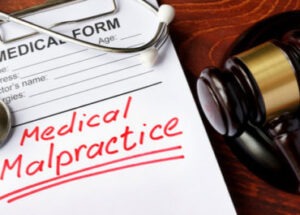
Medical malpractice can show up in several different places. When a person visits a hospital or their primary care physician (PCP), they expect to get the best care possible. They also hope to get the correct diagnosis and treatment to help them feel better. Unfortunately, while things might turn out the way a person envisions, they sometimes work out the opposite way.
The person might get misdiagnosed, have their laboratory test mixed up, or undergo unnecessary surgery. When any of this happens, the treating physician could be liable for a medical malpractice claim. However, proving negligence is not easy to do, as several factors must exist before a doctor would be responsible for malpractice.
In this article, our medical malpractice lawyers discuss how to prove medical malpractice. If you think you are a victim of medical negligence, contact Aeton Law today to learn about your rights and legal options.
What Proof do You Need to Win a Medical Malpractice Claim?
A medical malpractice accusation is quite severe as it can mar a person’s career, thereby destroying their means of livelihood. This is why courts won’t just take your word for it. You must be able to prove your assertions. Below we discuss what you need to establish in a medical negligence case.
The Existence of a Doctor-Patient Relationship
The first thing you must establish is the presence of a doctor-patient relationship. This relationship exists either by agreement or by treatment received. If none of the two exist, you don’t have a doctor-patient relationship with the physician.
For example, suppose you meet a doctor at a party, and you discuss some medical issues. The doctor discusses some treatment options, and you go home to use them. Subsequently, you have an adverse reaction to the treatment and claim medical malpractice against the doctor.
Such a claim will not stand as you have no doctor-patient relationship. Merely meeting a physician in a social gathering and having a medically-focused discussion does not make them your doctor. So, ensure you visit the doctor during work hours to record such a visit, diagnosis, and treatment.
The Existence of a Duty of Care
If a doctor-patient relationship does not exist, the physician doesn’t owe you a duty of care. However, if the relationship exists, the doctor must uphold the standard of care accepted in the medical community. Unfortunately, what amounts to a standard of care often goes through a “reasonable man test.”
This test simply looks at what another doctor would have done in the same situation. In medical malpractice cases, doctors often argue they did all they can, and another doctor would have arrived at the same judgment. So, it’s not enough to prove a duty existed; you must show how they erred, bringing us to the next factor.
The Existence of a Breached Duty
To win a medical negligence case, the doctor must have breached the duty of care owed to the patient. The presence of a breached duty invalidates the argument that another doctor would have arrived at the same conclusion.
Thus, you must show how the doctor, for example, misdiagnosed you or performed a surgical procedure you didn’t need. The best way to do this is by getting another doctor in the same specialty to review your medical records. Such a doctor can also stand as the expert witness in your case.
The Existence of an Injury
Even if a doctor breached their duty of care, you might not get damages if you did not suffer any wound. For example, a doctor diagnosed you with sickness A. But before commencing treatment, you decide to seek a second and third opinion, and the two said it’s sickness B. A fourth opinion confirms what the second and third doctors said. You cannot sue the first doctor for medical malpractice since you haven’t suffered any injury.
The Existence of Damages
Still relying on the example above, suppose you already received treatment after consulting the first doctor. But after a while, your condition worsened rather than getting better. You then sought the second to the fourth opinion, and they confirm your suspicion that you were either misdiagnosed or received the wrong treatment.
In such an instance, you suffered damages because of your worsened health and the money already spent. Once you can prove this and the other factors discussed, you would have established a medical malpractice case against the physician.
Are You a Victim of Medical Malpractice? Contact Injured CT!
At Injured CT, our medical malpractice attorneys have the knowledge and experience to win medical negligence claims. As a result, we have helped several Hartford residents get the maximum compensation and will do the same for you. So, call us today for a free case review.

